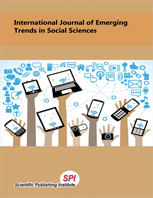Sultan Agung’s Thought of Javanis Islamic Calender and its Implementation for Javanis Moslem
DOI:
https://doi.org/10.20448/2001.41.9.14Keywords:
Calender, Javanis, Hijriyah, Saka, Islam.Abstract
This article aims to elaborate Sultan Agung’s Thought of Javanis Islamic Calender and Its Implementation for Javanis Moslem as guidelines in conducting daily activities. Sultan Agung was the third Sultan of Mataram in Central Java ruling from 1613-1645. A skilled soldier he conquered neighbouring states and expanded and consolidated his kingdom to its greatest territorial and military power. He was the greatest Sultan of Mataram. He sought to rationalize and improve the internal government of his kingdom. He reformed the tax-code and brought the courts and judicial system more in line with Qurʾānic precepts. He commissioned the building of the Karta Palace in 1614, the Royal Graveyard of Imogiri, as well as other social and civic structures within the kingdom. One of Sultan Agung’s conceptual contribution was Islamic Javanese calendar. It is a blend of Saka calender system with the Hijriyah calender. Saka year system itself is a mix of original acculturation Javanese Hindu-Buddhist. In the culture of Java, Javanis Islamic calendar not only serves as a marker of an event but also serves as a predicted survival and happiness of an arranged marriage or a particular event.


